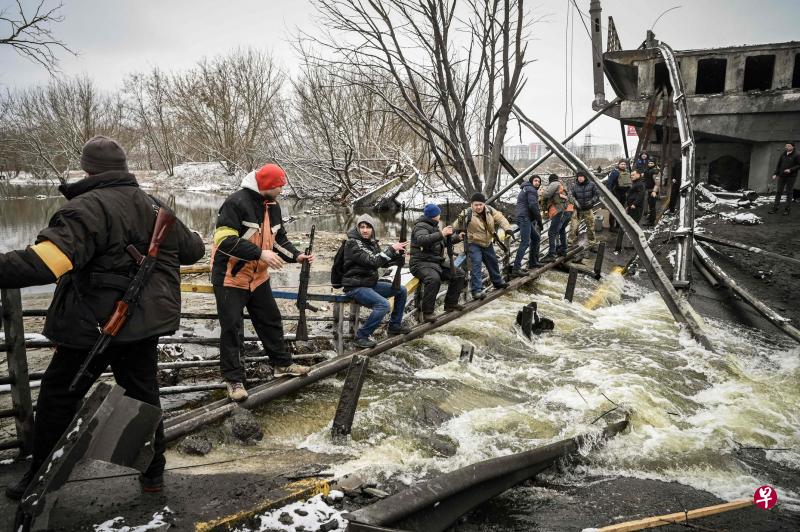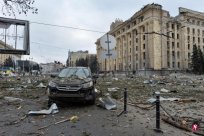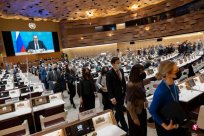
In addition to Western countries, Japanese Prime Minister Kishida also ordered the frozen foreign exchange reserves of the Russian Bank of Russia, which will make the Russian government unable to use tens of billions of dollars in Japan.Some officials say that it is not good for Russia to be too tight to other countries and may also destroy the Swift mechanism. Western countries will face the risk of pushing Russia to an alliance with China.
(Brussels/Washington Composite Electric) banks around the world have successively implemented sanctions on Russia to gradually reduce the connection with many Russian banks.Canada and the United States have unprecedentedly prohibited all transactions with the Russian Bank of Russia, so as not to allow Russia to use huge hard currency reserves to support rubles.However, analysts and European officials pointed out that the impact of sanctions will not be limited to Russia.
French Minister of Finance Lemer said that Western sanctions against Russia will cause Russia's economic collapse.British Prime Minister Johnson said in Watsha, Poland: "We will continue to maintain economic pressure ... It has obviously had a huge impact. We have prepared to strengthen sanctions. As long as there is a need, sanctions will continue."
Faced with powerful sanctions, the Kremlin vowed not to succumb to the pressure of sanctions.The Ke Gong spokesman Peskov said: "They expect to force us to change their positions. This is impossible."
Western countries have decided to exclude some Russian banks from the Global Bank of Financial Communications (SWIFT)payment system.EU Foreign Affairs Commissioner Borel said that sanctions will freeze about half of the foreign exchange reserves held by Russia in the Seventh Kingdom Group.
The United States prohibits the US and enterprises from carrying out business with the Russian Bank of Russia, the National Fortune Fund and the Ministry of Finance, and impose new sanctions on Russia's sovereignty wealth fund and its CEO, Putin Cantrine DmitryevEssence
The EU's new round of sanctions aimed at more Russian officials, including Peskov and some well -known oligarchs, such as Xie Qin, CEO of State Petroleum Corporation, and three of Forbes Russia's top ten rich people.
The neutral country Switzerland also announced the participation of the EU sanctions plan, freezing the assets of Russia's relevant individuals and institutions in Switzerland, and prohibiting Swiss companies from conducting business exchanges with the sanctions.
Japanese Prime Minister Kishida ordered the frozen foreign exchange reserves of the Russian central bank, which will make the Russian government unable to use tens of billions of dollars in Japan.
Investors seeking selling Russian assets continue to increase.Norway's largest pension fund KLP plans to sell about $ 56 million (about $ 76 million) Russian stocks.Norwegian Prime Minister Steller has announced on Sunday that the government has decided to remove Russian assets from the world's largest and $ 1.3 trillion sovereign wealth fund.
Ship Group Maersk also announced that all container shipping in and out of Russia has temporarily suspended.
Washington hopes that Chinese companies such as SMIC and Lenovo Group can join the sanctions against Russia and cut off the channels for Russia to obtain high -tech key technologies and components.




